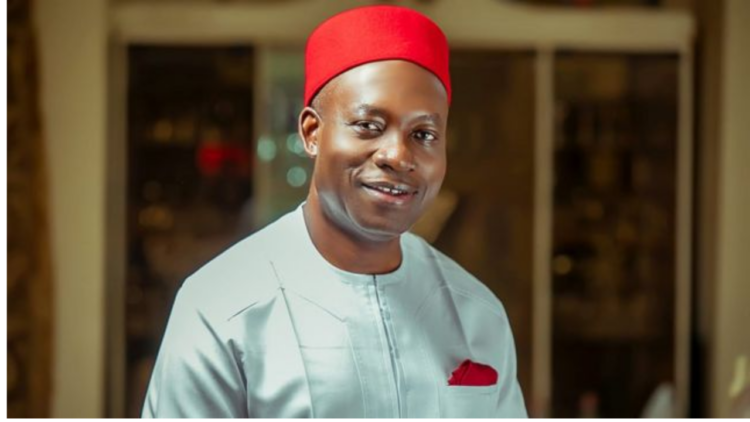The member representing Ikwo/Ezza South federal constituency in the House of Representatives, Hon. Chinedu Ogah, has called on the Anambra State governor, Prof Chukwuma Soludo, to investigate and address reported cases of harassment, intimidation, and abuse by some security operatives targeting Ebonyi indigenes in Anambra State.
Ogah, who described the report as disturbing, maintained that unity cannot thrive where discrimination and intimidation exist.
He made the call while reacting to Soludo’s restoration of the Abakaliki Street, which had been changed by the former governor of the state, Sir Willy Obiano, to Club Street.
The change in name was widely condemned by the Ebonyi State government, Anambra indigenes resident in Ebonyi State, Hon Chinedu Ogah, and other leaders in the state, who argued that there were over 50 streets in Abakaliki with the names of communities and individuals of Anambra origin.
“Let me use this opportunity to raise concerns about the mistreatment of Ebonyi residents in Anambra State. There has been reported cases of harassment, intimidation, and abuse by some security operatives targeting Ebonyi indigenes.
“I call on Governor Soludo to investigate and address these disturbing reports. Unity cannot thrive where discrimination and intimidation exist.
“The street, which was previously renamed “Club Street,” was recently reverted following months of public concern and a formal appeal by me in April 2025. Let me commend Governor Soludo for what he did which I see as a unifying and culturally respectful decision.
“Restoring Abakaliki Street is not just about a name.
It is a bold statement of unity, mutual respect, and recognition of shared history between the people of Ebonyi and Anambra States.”
Hon Ogah, who is the Chairman of the House Committee on Reformatory Institutions, emphasised that such gestures go a long way in promoting harmony across the Southeast, particularly between neighbouring states with strong cultural and economic ties.
He appealed to the Anambra State Government to extend inclusion and recognition to Ebonyi people living in the state, especially in areas like land ownership and social integration, just as Ebonyi State continues to accommodate and empower non-indigenes.
“Our people in Anambra deserve the same hospitality and respect extended to others in Ebonyi. Fair treatment and mutual support will only strengthen inter-state relations,” he added.
He also called on Ebonyi residents in Anambra to remain law-abiding, respectful of local laws, and refrain from actions that could provoke tension or reinforce tribal divisions.
“We must be ambassadors of peace and unity wherever we find ourselves. Let us avoid actions that could attract shame or foster discrimination,” he advised.
Some Ebonyi indigenes have described Hon Ogah’s intervention as a timely step toward rebuilding trust and regional solidarity in the Southeast.
They maintained that it also underscores the urgent need for Southeast leaders to collaborate in dismantling artificial barriers and promote a united front in national politics.











